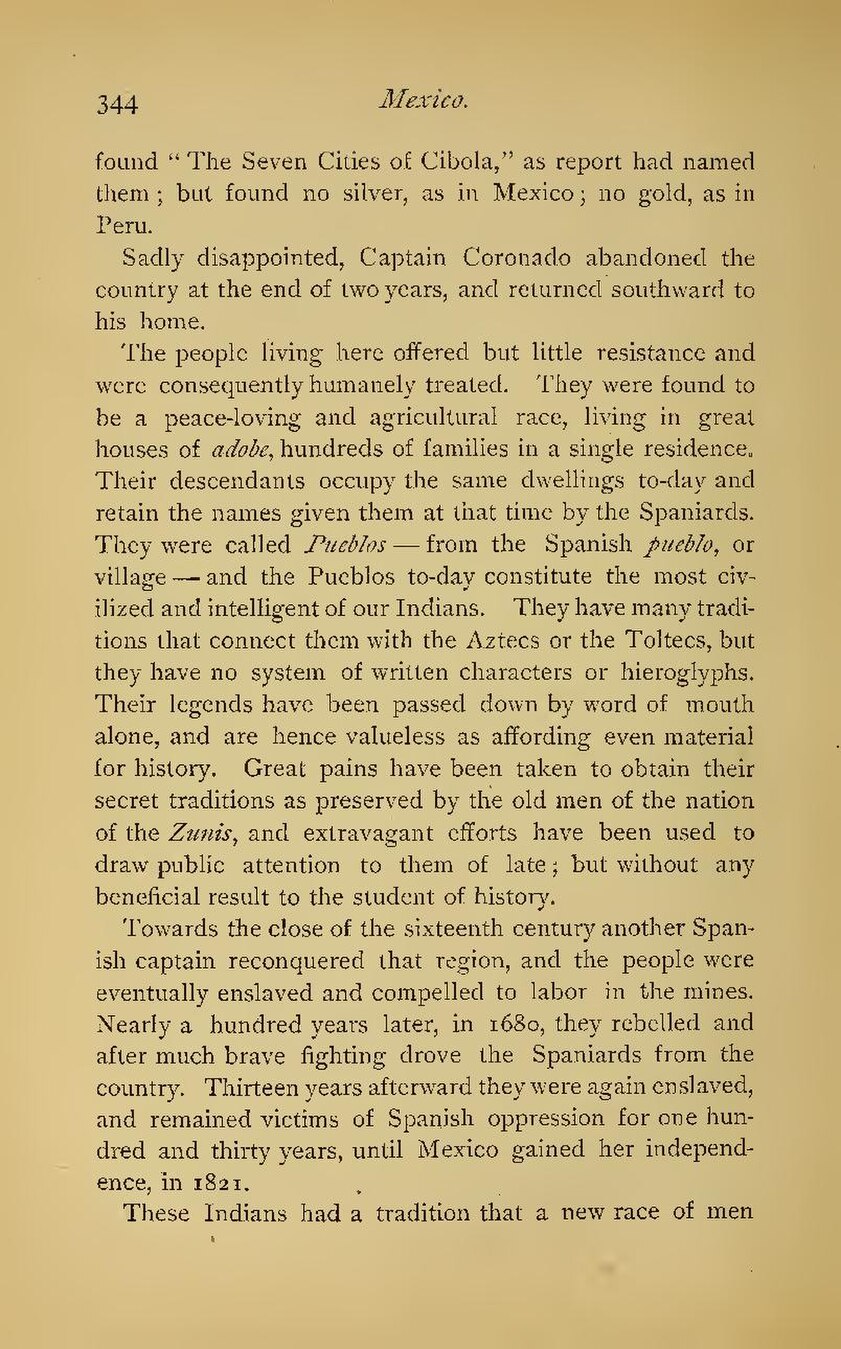found "The Seven Cities of Cibola," as report had named them; but found no silver, as in Mexico; no gold, as in Peru.
Sadly disappointed, Captain Coronado abandoned the country at the end of two years, and returned southward to his home.
The people living here offered but little resistance and were consequently humanely treated. They were found to be a peace-loving and agricultural race, living in great houses of adobe, hundreds of families in a single residence. Their descendants occupy the same dwellings to-day and retain the names given them at that time by the Spaniards. They were called Pueblos—from the Spanish pueblo, or village—and the Pueblos to-day constitute the most civilized and intelligent of our Indians. They have many traditions that connect them with the Aztecs or the Toltecs, but they have no system of written characters or hieroglyphs. Their legends have been passed down by word of mouth alone, and are hence valueless as affording even material for history. Great pains have been taken to obtain their secret traditions as preserved by the old men of the nation of the Zunis, and extravagant efforts have been used to draw public attention to them of late; but without any beneficial result to the student of history.
Towards the close of the sixteenth century another Spanish captain reconquered that region, and the people were eventually enslaved and compelled to labor in the mines. Nearly a hundred years later, in 1680, they rebelled and after much brave fighting drove the Spaniards from the country. Thirteen years afterward they were again enslaved, and remained victims of Spanish oppression for one hundred and thirty years, until Mexico gained her independence, in 1821.
These Indians had a tradition that a new race of men
